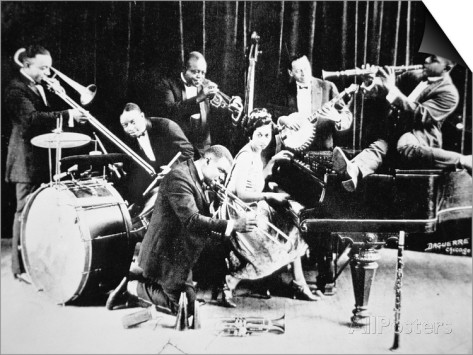“You have to think beyond your time.” That’s how Wynton Marsalis described the challenge of appreciating styles and sounds that precede one’s era. His adage comes to mind whenever I listen to the groundbreaking music of King Oliver’s Creole Jazz Band and other bands of the twenties and thirties. “Dipper Mouth Blues” is a classic example of a landmark recording that bears repeated listening. Recorded on April 7, 2923, Oliver’s 22-year-old protege Louis Armstrong plays the cornet lead, and Joe Oliver the three-chorus cornet solo. Composed by Oliver and Armstrong, the tune itself is so good that it was re-invented by Don Redman and Fletcher Henderson a few years later and became the big band standard “Sugar Foot Stomp.” Oliver’s manner of effecting a “wah wah” cry through a plunger mute became a ubiquitous element of jazz by the mid-twenties and had a profound influence on the growling brass mystique of Duke Ellington’s music, His solo is one of the most imitated of all time, and is so paradigmatic of blues that it can be played now, on any instrument, and still sound modern. Today is Joe “King” Oliver’s 131st birthday anniversary. (The band pictured on the face of this YouTube file for “Dippermouth Blues” is not the Creole Jazz Band of 1923, but Oliver’s orchestra circa 1927.)
It’s recently come to light that there’s a 33-minute film of Louis Armstrong in a recording studio in 1959. As it happens, it was shot in Los Angeles during the making of his tribute album, Satchmo Plays King Oliver. Click here for the background story on this wonderful discovery that’s now been added to the huge Armstrong archive at the Louis Armstrong House Museum in Queens.



